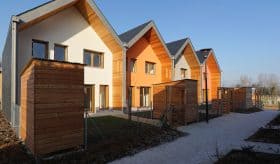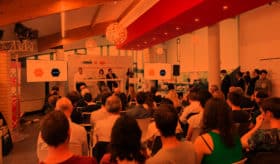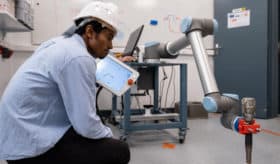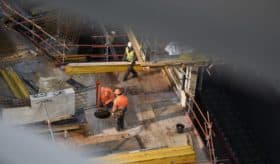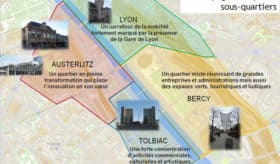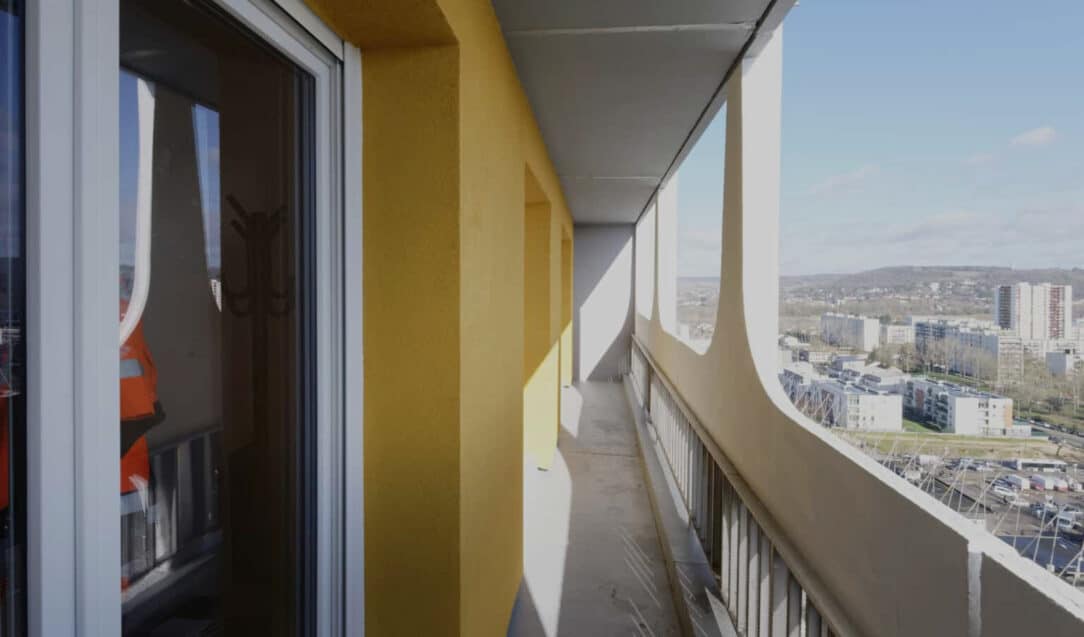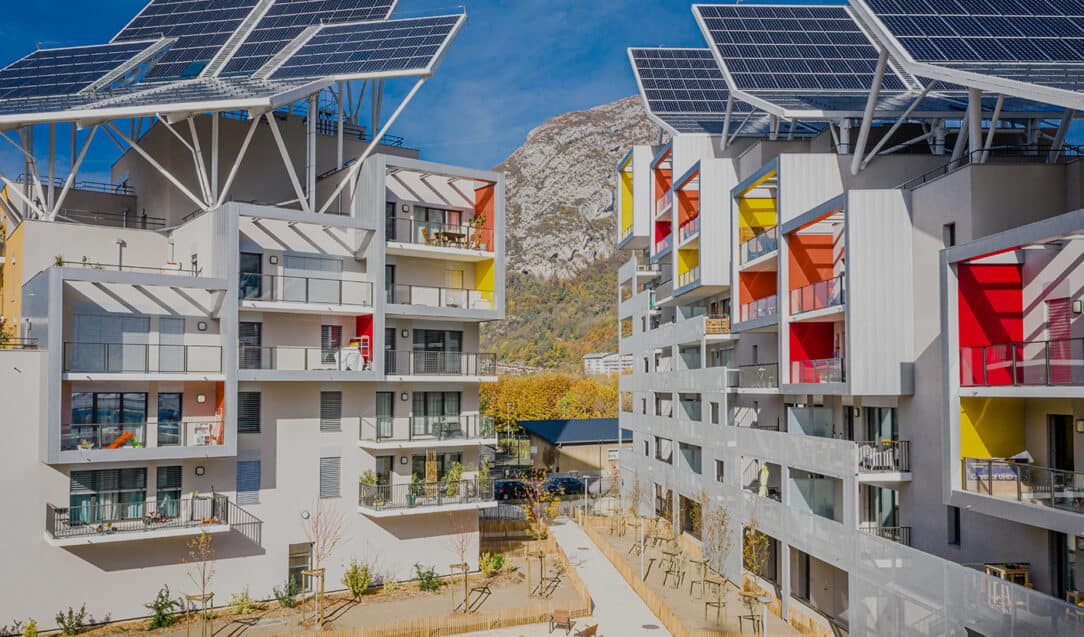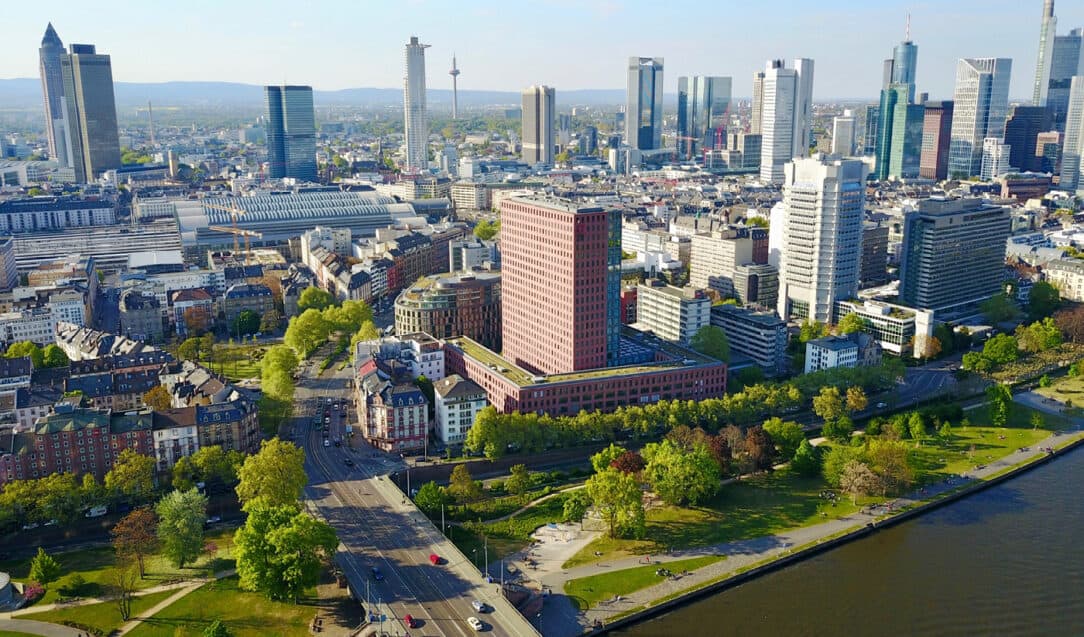Interview with Karine Famy
How can lean management change the world of construction? Karine Famy, Director of Production Habitat Nord at Bouygues Bâtiment Nord-Est, explains.
Eco-design: to make construction durable and smart
A platform in favour of eco-design, created by Marie-Luce Godinot, Executive Vice President of Bouygues Construction, in charge of Information Systems, Digital Transformation, Innovation and Sustainable Development; and Thierry Juif, Environment and Eco-design manager for Bouygues Construction.
Brézillon Environnement collaborates with Hésus to process inert soil from sites
With environmental issues changing sites, Hésus offers construction industry professionals the chance to improve the management of excavated material using recovery solutions, combined with logistical expertise. This collaboration is already under way on Brézillon Environnement’s construction sites!
Interview of the month: Pauline Philippe
An interview with Pauline Philippe, sustainable real estate and biomimicry consultant at Elan. Bio-based real estate: reinventing a city by living organisms, for living organisms.
Interview with Alan Mossman
Alan Mossman is Managing Director of The Change Business Ltd, a lean design and construction consultancy. He is an occasional author and professor of lean construction at universities such as Loughborough and Nottingham Trent. If BIM is about technology, then lean is about the people who use that technology! Alan Mossman tells us about it today, through his favourite field, lean construction.
Stéphanie Barrault, head of the Circular Design Experience project: applying all of the circular-economy principles to the construction sector
In France, the construction sector generates more than 40 million tonnes of waste every year and consumes large quantities of resources to meet the needs of renovation and new construction. A situation that contributes to threatening certain resources with scarcity, or even shortage, in the medium to long term. For example, this is the case with sand, of which the sector is a large consumer.
What’s the situation with “Mobility As A Service”?
Buses, underground systems, trams, car-sharing or short-term rental cars, car-pooling, mini-cab services, bikes, mopeds and self-service scooters, with or without stations: with the proliferation of forms of mobility, the residents of major cities have never had so many means of travel available to them.
Eco-grazing in the city, a practice that appeals to communities and social housing providers
The end of pesticides in public parks. Since 1 January 2017, in application of the law on energy transition for green growth, local authorities may no longer use plant protection products to maintain parks, roadsides or forests.
What if work sites were directly managed by thought in the future?
Operate your smartphone through thought; send a message or post a photo online without making any movement: are these practices worthy of a science fiction book in the process of becoming reality? In the future, will we have alternatives to the body for communicating with the outside world? This is the dream of the giants of the digital world who have thrown themselves enthusiastically into the field of Brain-Computer Interfaces (BCIs).
Interview with Martin Fisher
How has BIM tech improved productivity? What are its most innovative applications in construction? What can we expect from BIM in terms of Big Data? Martin Fisher, Professor of Civil and Environmental Engineering at Stanford University, answers all our questions!
What are the challenges for a floating city?
What if tomorrow we lived in cities that floated on the sea? It’s an idea that is gaining ground through a UN-supported initiative. But is it a maritime pipe dream?
Three questions to… Mehdi Hafsia
Mehdi Hafsia, research engineer for the R&D division, attended the 19th International Conference for Construction Applications of Virtual Reality (CONVR19), an international event dedicated to new technologies in our sector. He would like to share his feedback with us.
Using industrialisation to accelerate the energy revolution
One of the most significant potential areas for saving energy and greenhouse gases is the thermal renovation of buildings. But we are not renovating enough. The method needs to change, and this will probably happen via industrialisation. Industrialisation, boosted by the European EnergieSprong project, means improved performance and quality of use.
Focus on connected offices
Digitalisation is having an impact on all those who use our buildings. The real estate sector, which includes planning, major construction companies, marketing and services must adapt.
Reinventing collective housing, and more
The need to make cities denser and to develop original tools for collaboration is giving rise to new ways of approaching the design of urban planning and housing. There are two objectives: to get citizens involved in urban projects that affect them directly; and, in parallel, to promote the design of open and custom collective housing in their own image.
3 questions to Emna Attouri, PhD student at Chaire Construction 4.0
Cast in situ, precast twin walls, precast slabs, modular construction, 3D printing... how do you choose? This, in essence, is the research project being carried out by Emna Attouri, a PhD student participating in the Chaire Construction 4.0 research
3 questions for Andry Zaïd Rabenantoandro, a PhD student at Chaire Construction 4.0
Bouygues Construction and Centrale Lille formed Chaire Construction 4.0 in 2017, to support the digitalisation and industrialisation of the sector. We met with PhD student Andry Zaïd Rabenantoandro, whose thesis is on 3D printing in construction.
Objective: zero waste…
Regulatory pressure is growing on how building and public works waste is processed. The sector produces 70% of waste in France (245 million tonnes, 46 million tonnes of which from the construction sector).
2 Rives, the circular-economy neighbourhood in Paris
When companies start pooling their efforts, sharing their tools and valuing their resources, does that create a circular economy?


